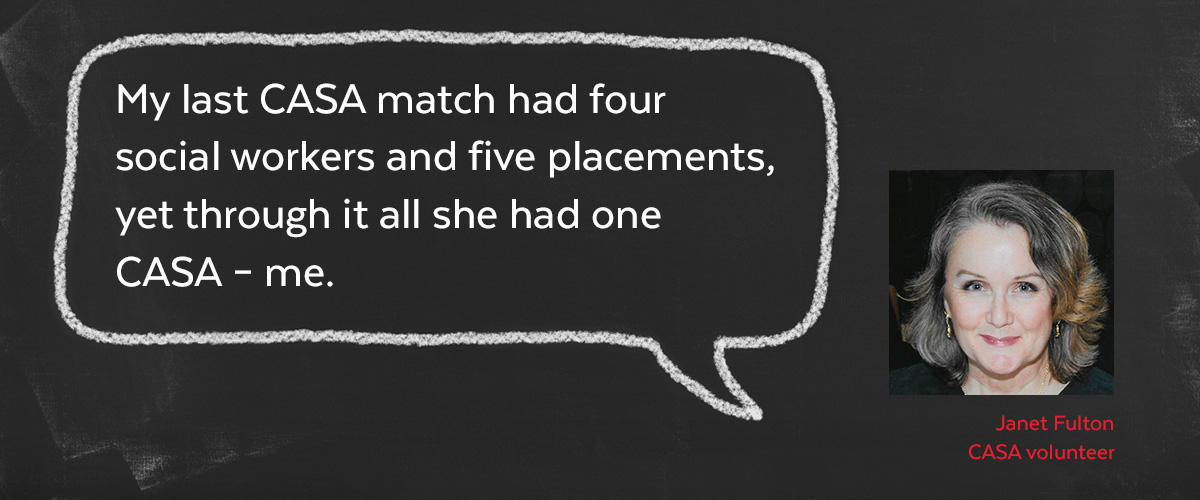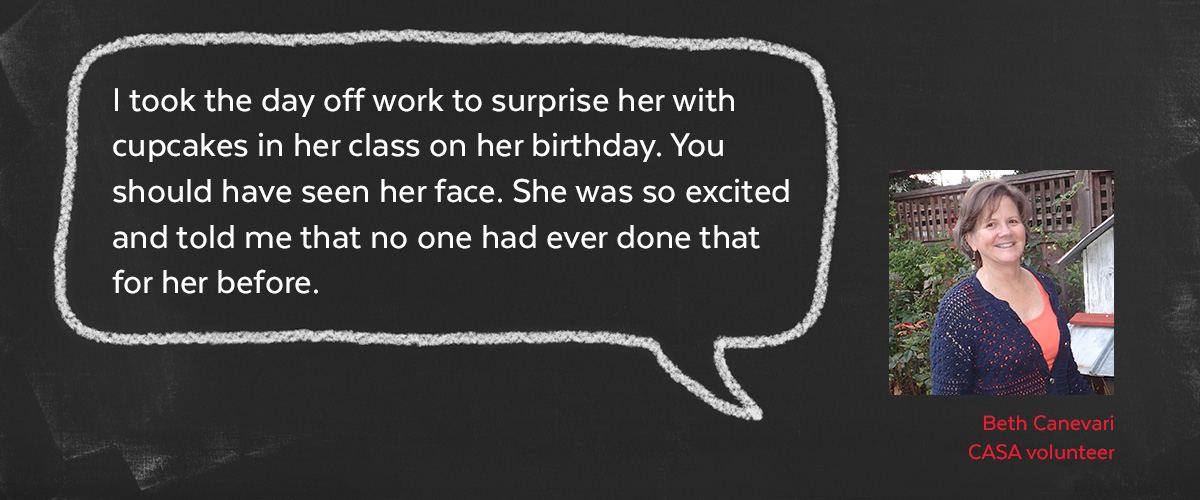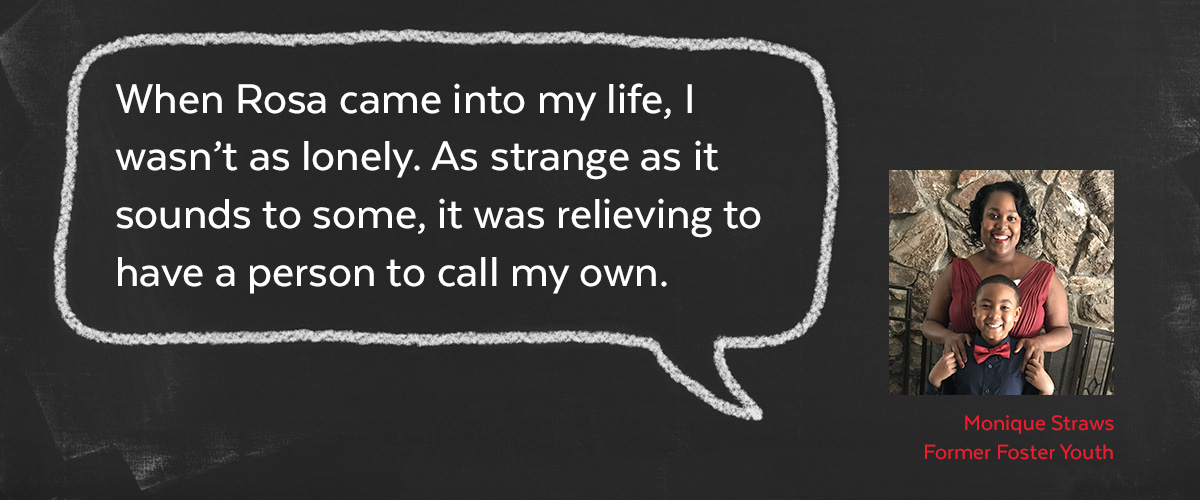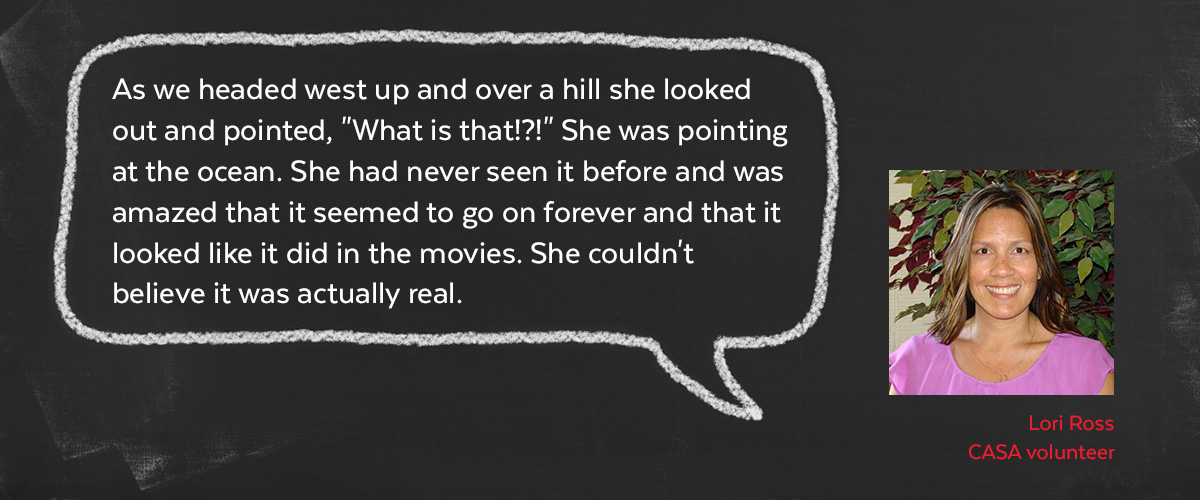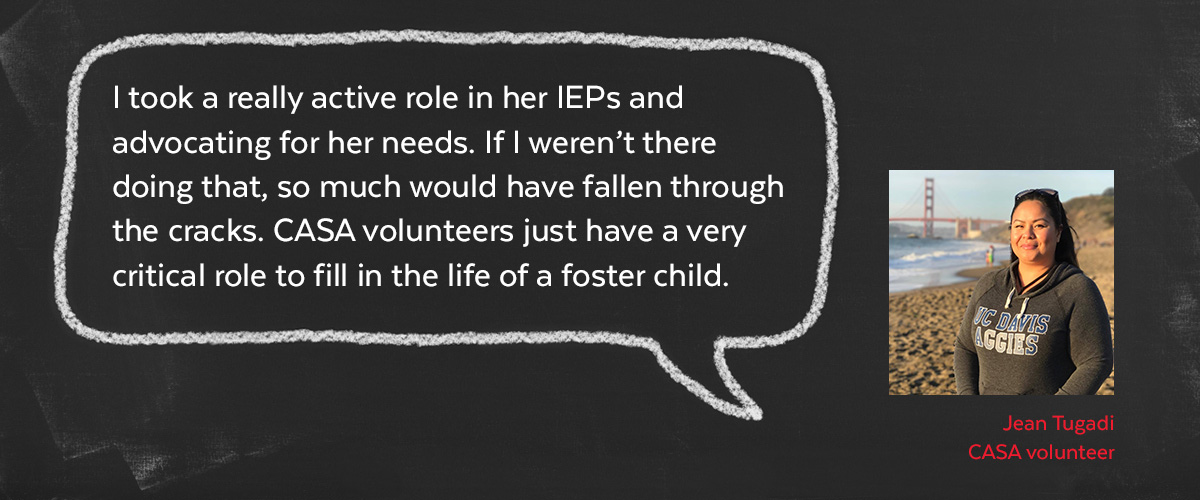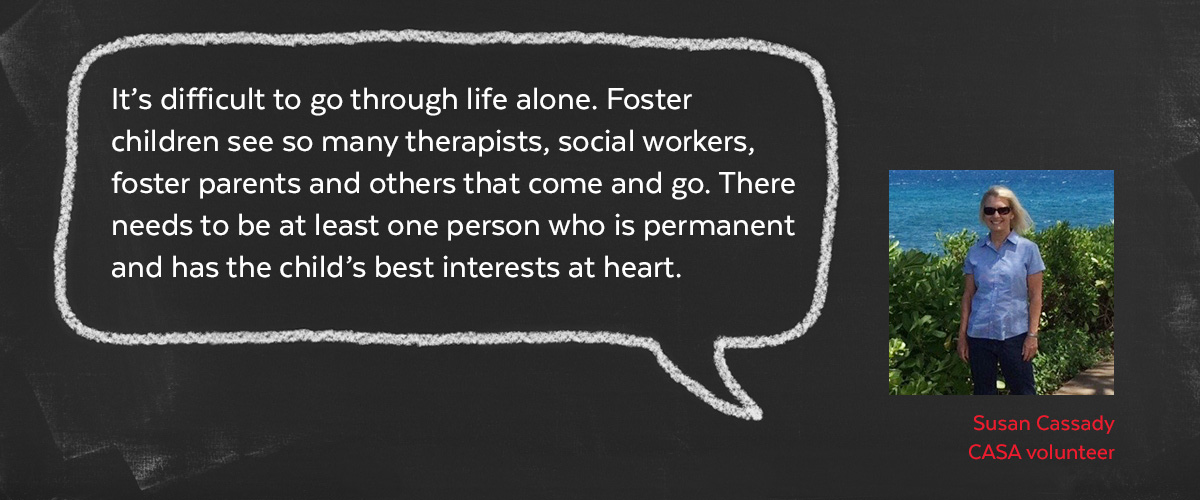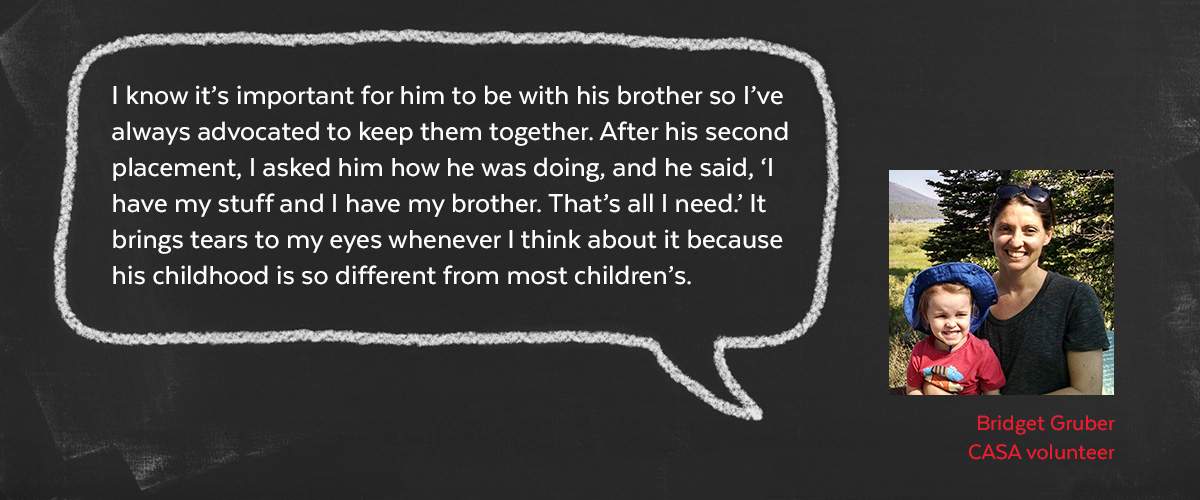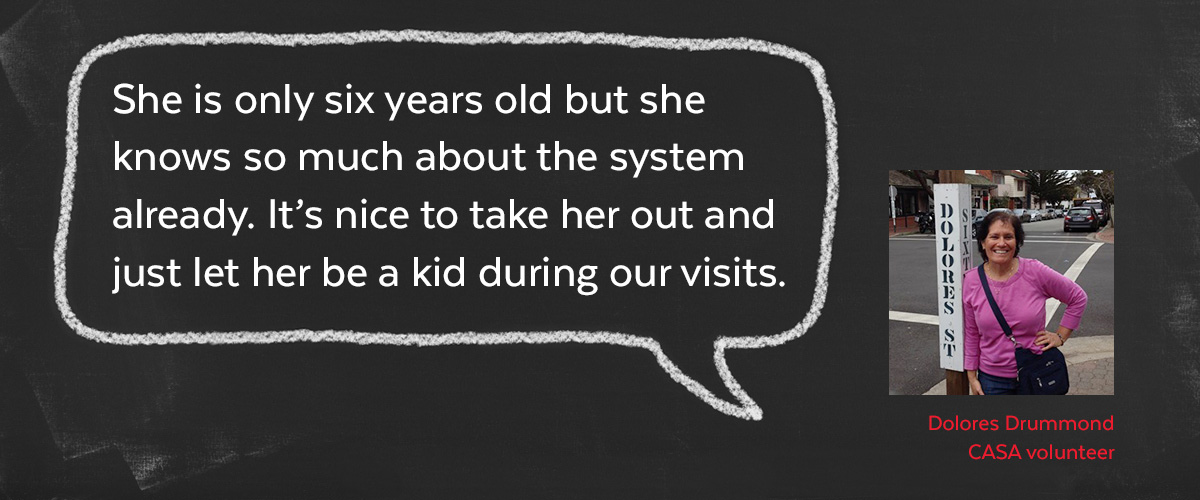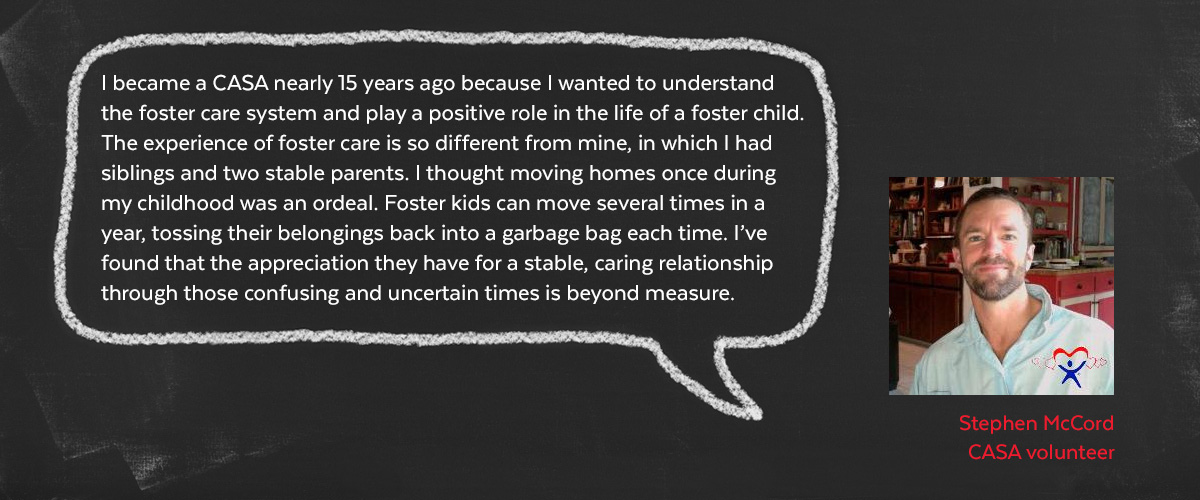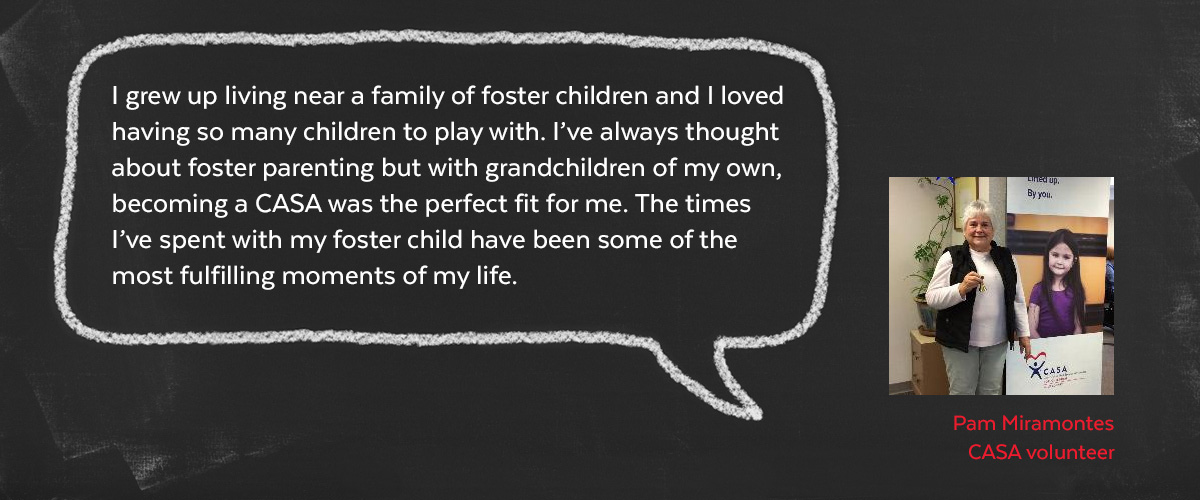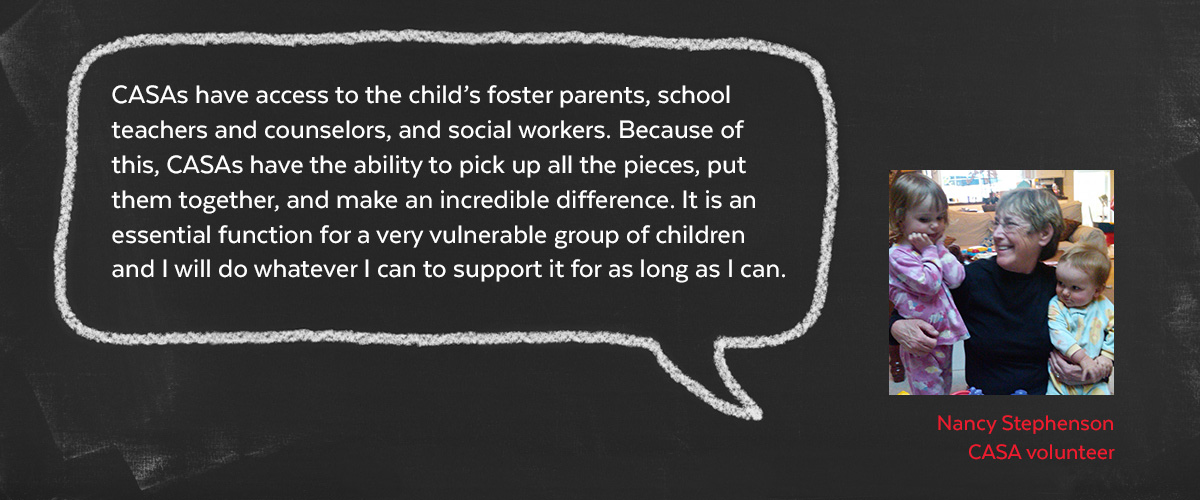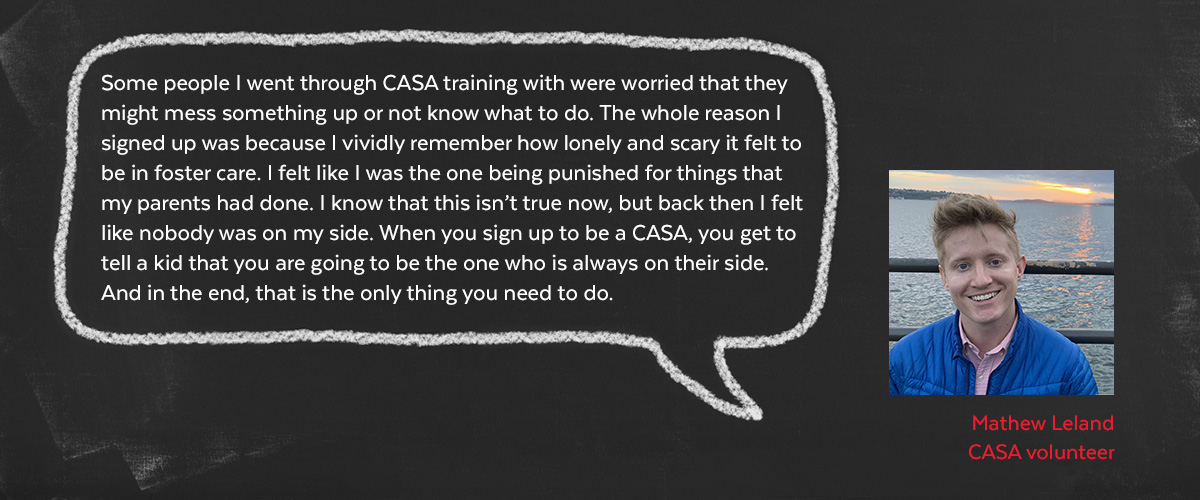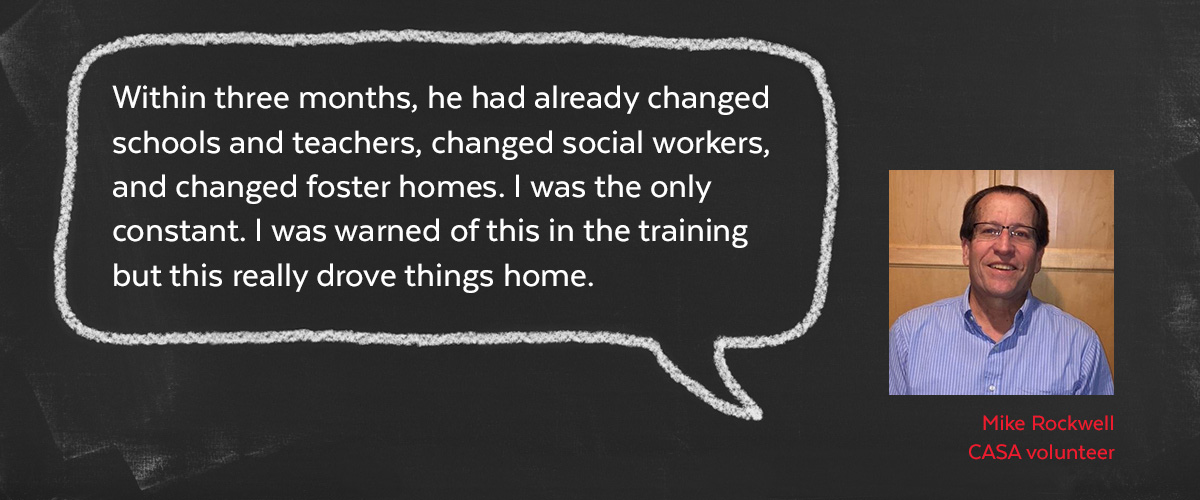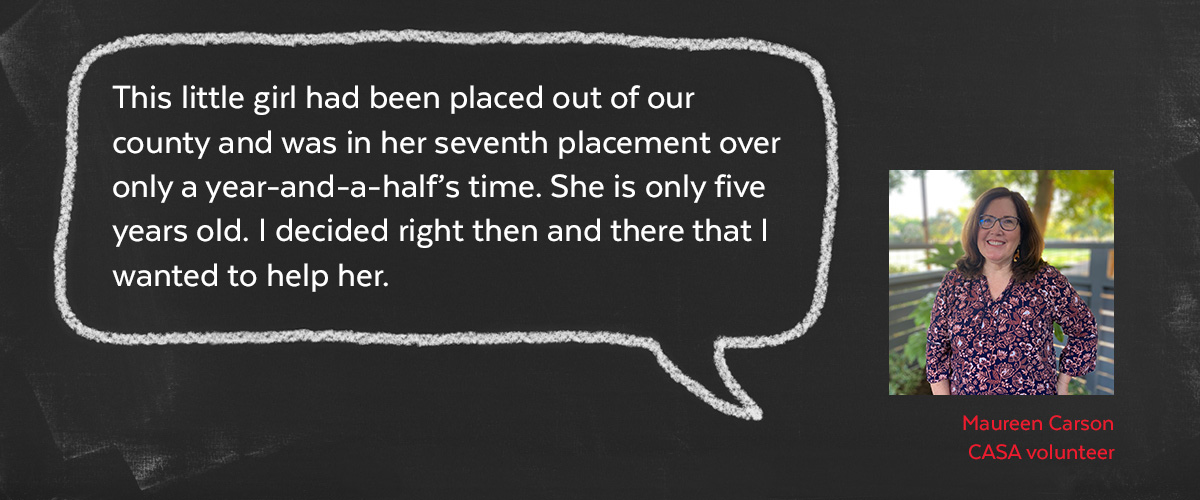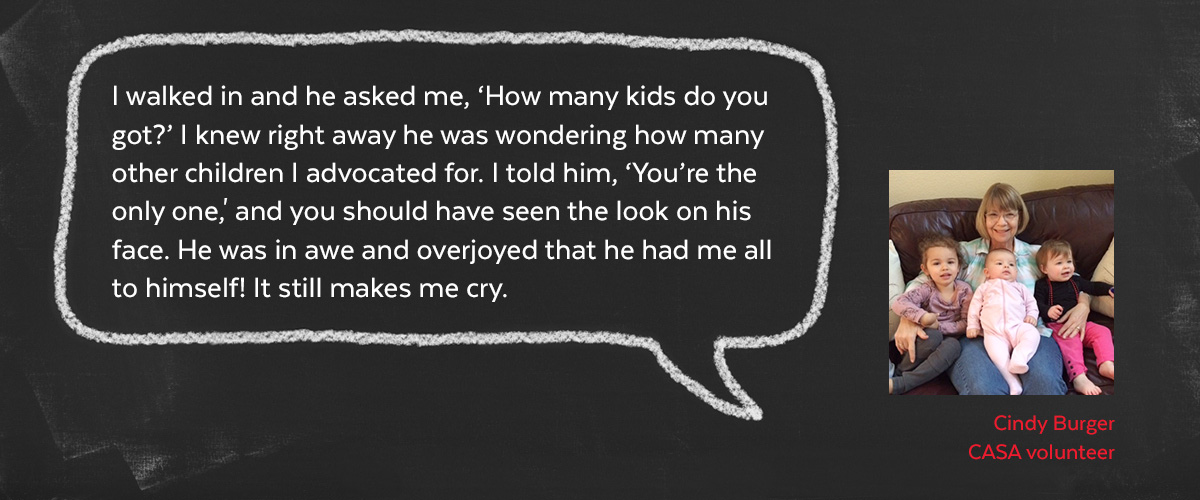Art is the tie that binds Susan Shelton to Yolo County CASA. While in the process of completing a pre-med degree at UC Davis, Susan took a ceramic art class to relax, but found her life’s calling instead. “I fell in love with the artform and knew that this would be not only my career, but my passion.” Her career has included a wide range of ceramic work, from pottery to large public art installations and garden landscape projects, and for the past ten years, she’s taught ceramic art to kids who’ve been through trauma.
“Art has such healing properties, and I’ve loved giving young people, who otherwise wouldn’t experience it, a chance to express themselves creatively, to develop confidence, and to expand their horizons.
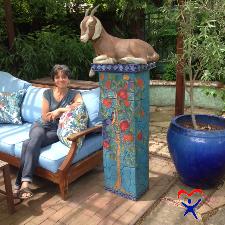
Susan also saw the positive impact of the relationship she was able to build through her work with these teenagers, and decided to take things one step further and become a CASA volunteer. “I’d worked as a Spanish interpreter in the Yolo County Dependency Court and I also regularly donate my art to Yolo County CASA’s auction. I truly felt called to this natural next step of involvement with the organization.”
Susan has had her CASA youth since last March. “I chose a teenager because I really liked that age group from my art teaching. I find teenagers to be incredibly interesting and also very much in need of a trusted relationship.” Susan’s CASA youth was slow to open up. “He went through a big move just after my assignment, and it wasn’t a good placement at all, so it was a very difficult time for him. He is also disabled, and very self-conscious about his disability so he doesn’t like to go out in public when he doesn’t have to.”
In fact, Susan’s CASA youth’s self-conscious feelings and difficult personal history made him very reluctant to trust people, so much so that he wasn’t even sure he wanted a CASA volunteer. Susan says, “I just started slow. If he wasn’t up for a visit, I would drop something off for him that I thought he might like. For example, since he is from Honduras and I spent part of my childhood in Mexico, I would bring him homemade foods like empanadas. I would also speak to him in Spanish sometimes, just to show that commonality.”
When Susan’s CASA youth was placed in a more amenable home for his needs, his outlook improved but his placement was farther away than before from Susan. “All of a sudden he needed rides places and it was a perfect role for me to fill. His caretaker works full time and is in school at night so when he needed a ride to get somewhere I would take him. This led to a deepening of our relationship over our talks in the car, and he was able to start opening up to me. He also got much less self-conscious about his disability around me, which was a huge breakthrough.
A memorable moment is when he and Susan went two weeks between one of their visits. “I told him I had missed him when I arrived. He said he missed me too. It was a pivotal moment—going from him saying in the early days that he didn’t want a CASA volunteer to him telling me he missed me.”
Another pivotal moment came when Susan’s CASA youth asked her to help him get a job. “He needed help getting a social security card, so I took that on, and I’ve researched programs for job opportunities for him that would accommodate his disability. I also keep encouraging him through this process, which is a great step toward independence, something he has stated several times he very badly wants. This is the kind of advocacy CASAs do. It’s not just in court, but it’s also these types of things that make a huge difference.”
As Susan reflects on her experience being a CASA so far, she highlights what the CASA volunteer gains as well as the CASA youth. “Many people become CASAs to make a difference in a child’s life but they don’t realize how much the child is going to positively impact their lives. My CASA youth is intelligent, charismatic, and funny, and he has introduced me to science fiction movies and learning Russian, things I probably would have never explored on my own. We’re developing a meaningful friendship, and I think about him and his well-being often. When he no longer needs me as a CASA, I hope he would like me to continue to be his friend. And as for me, my life has forever been enriched by this experience.”

